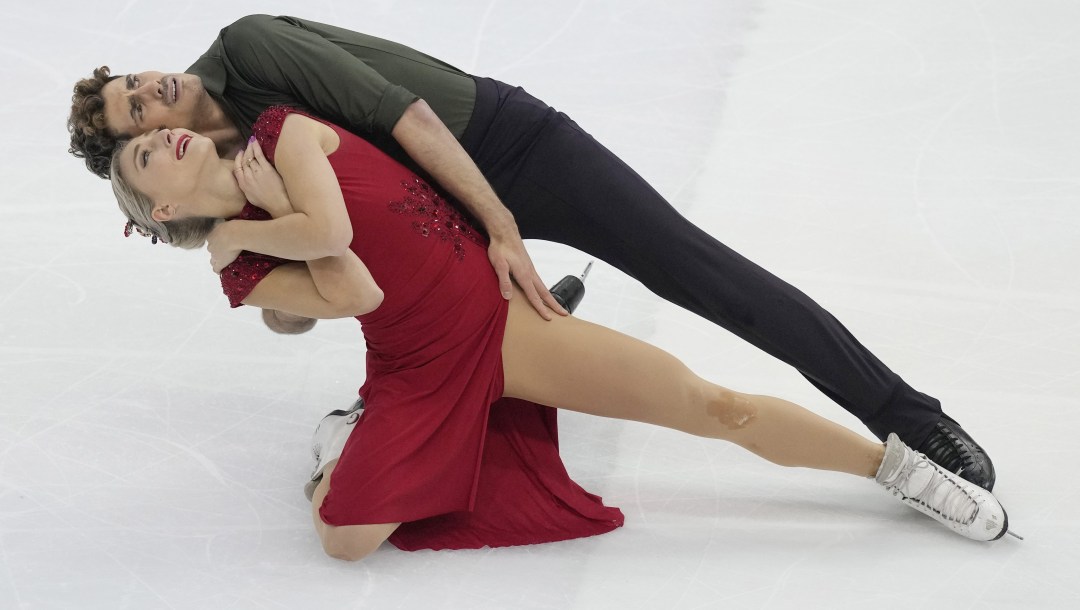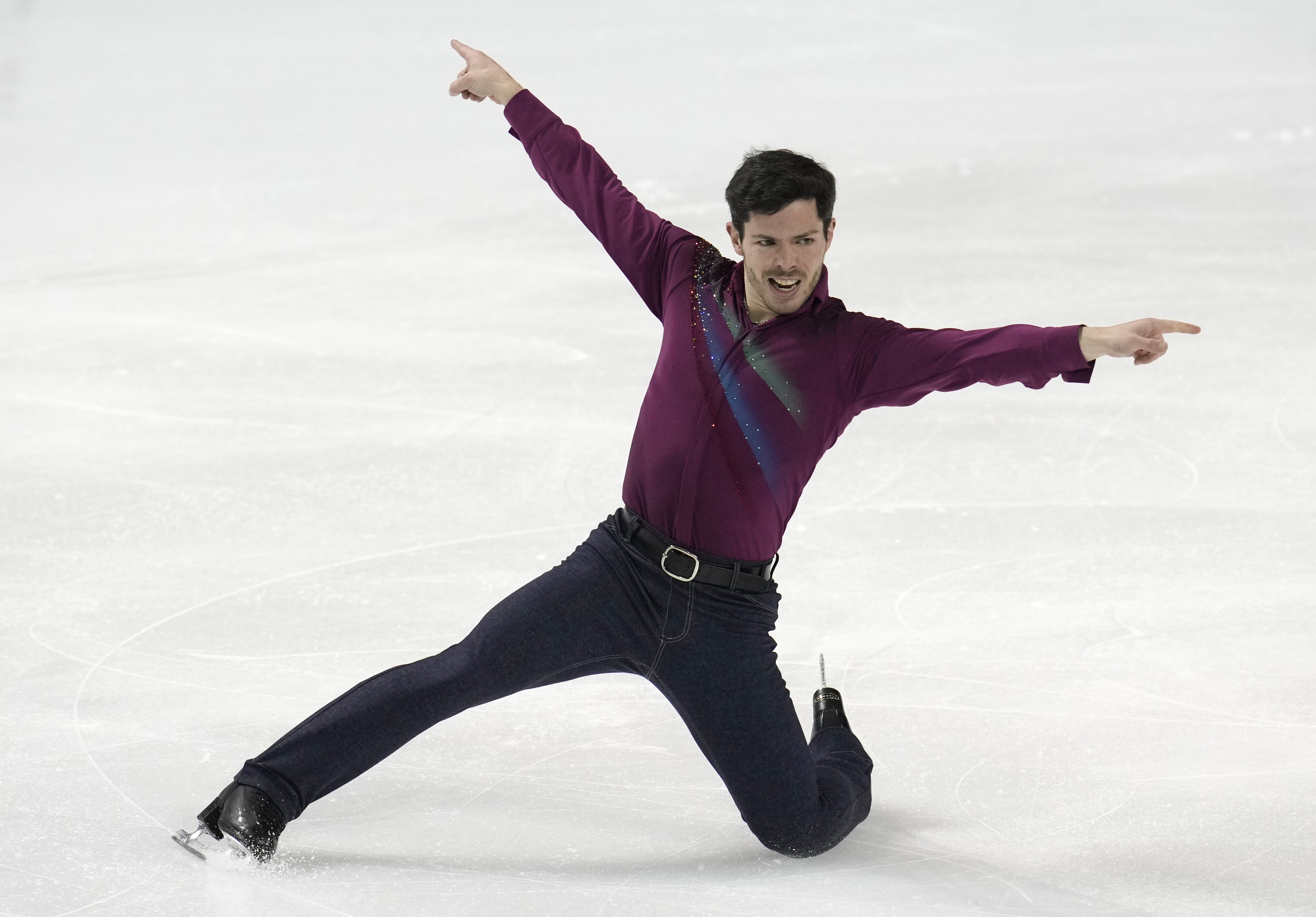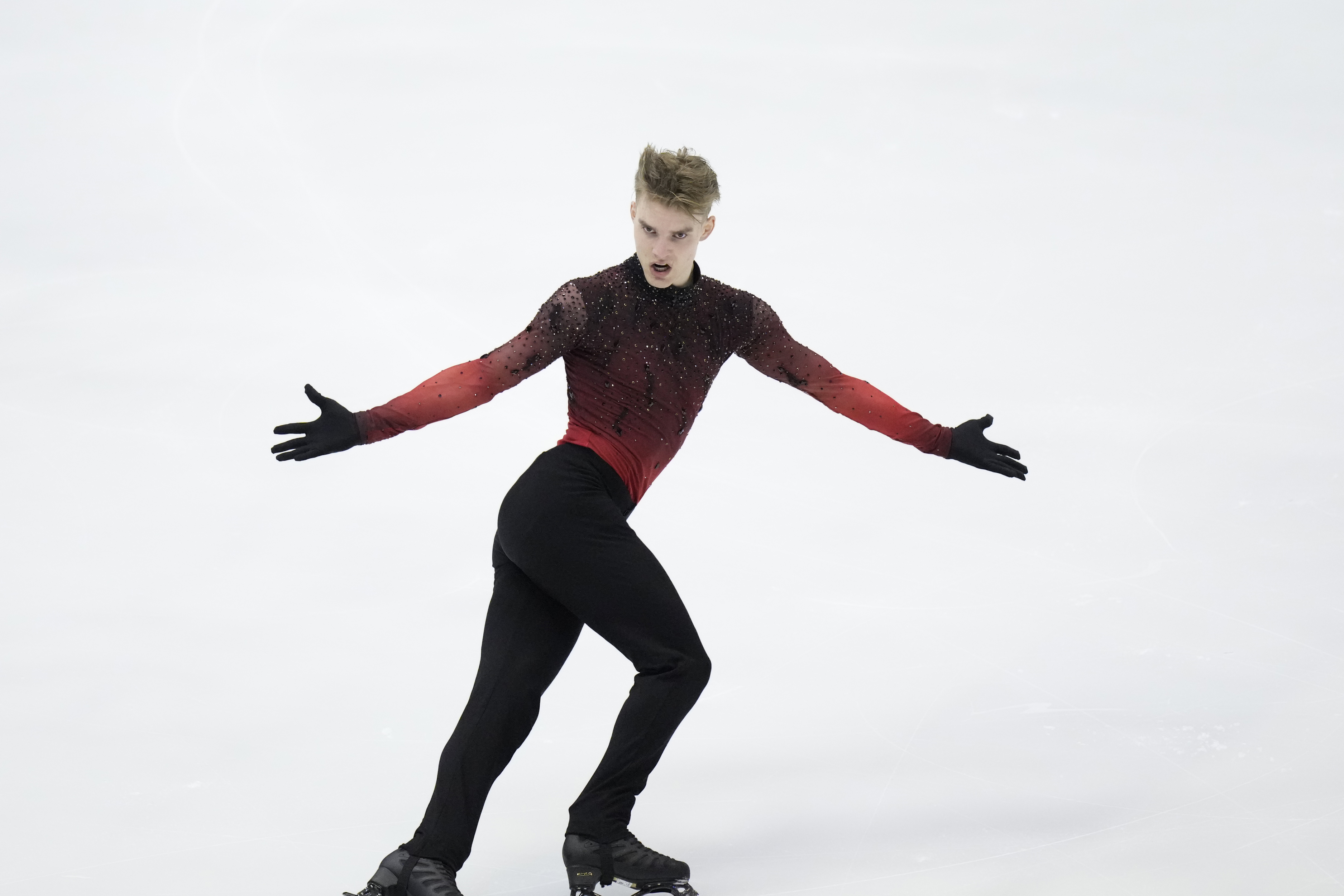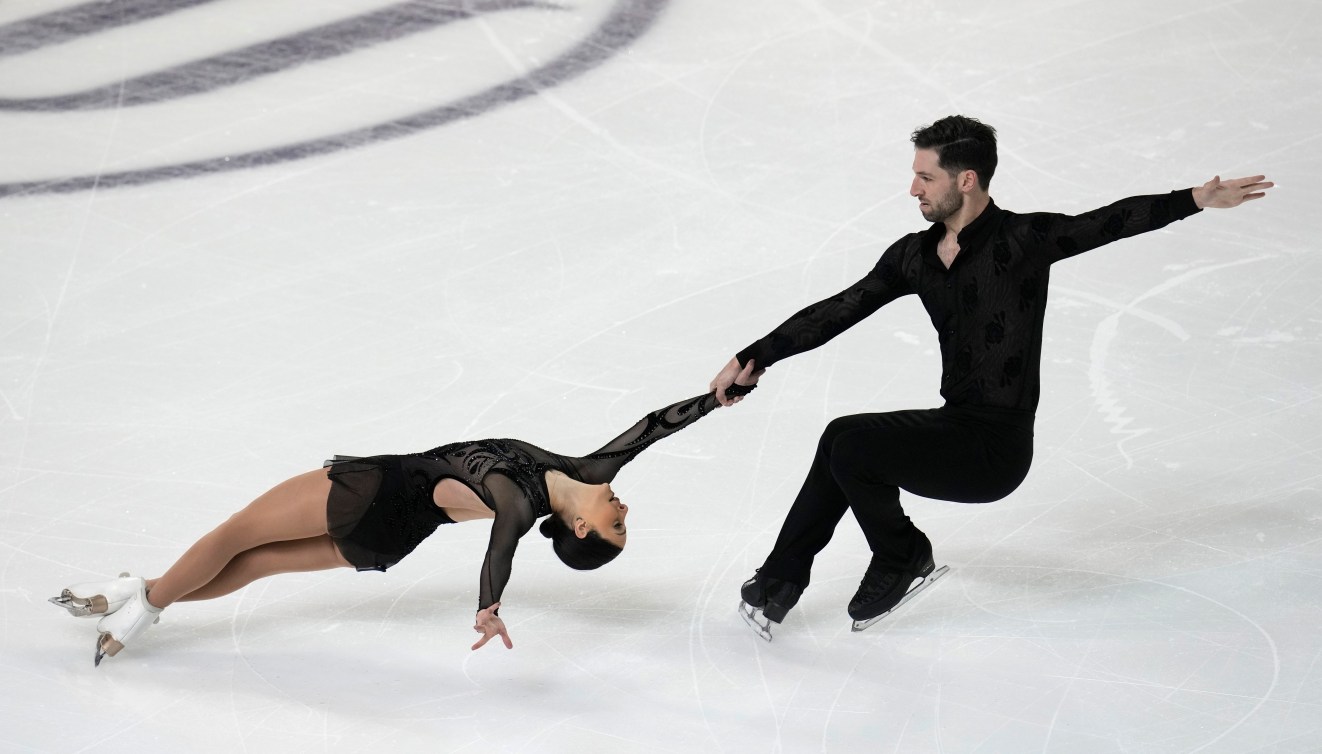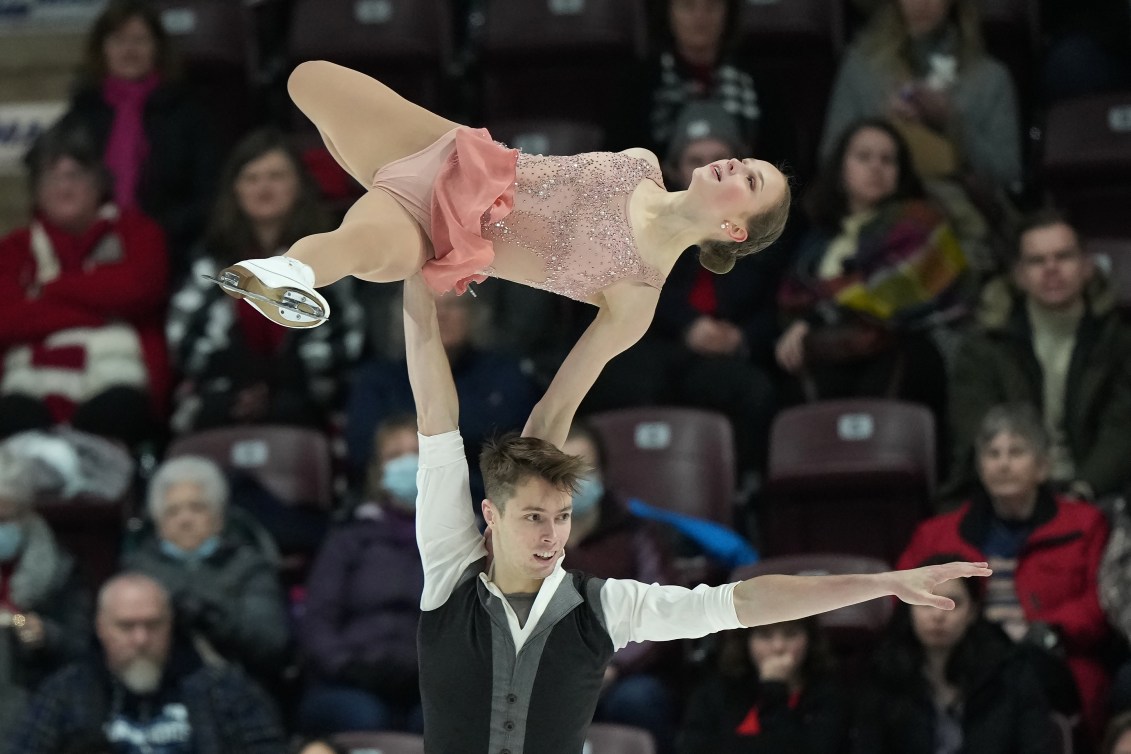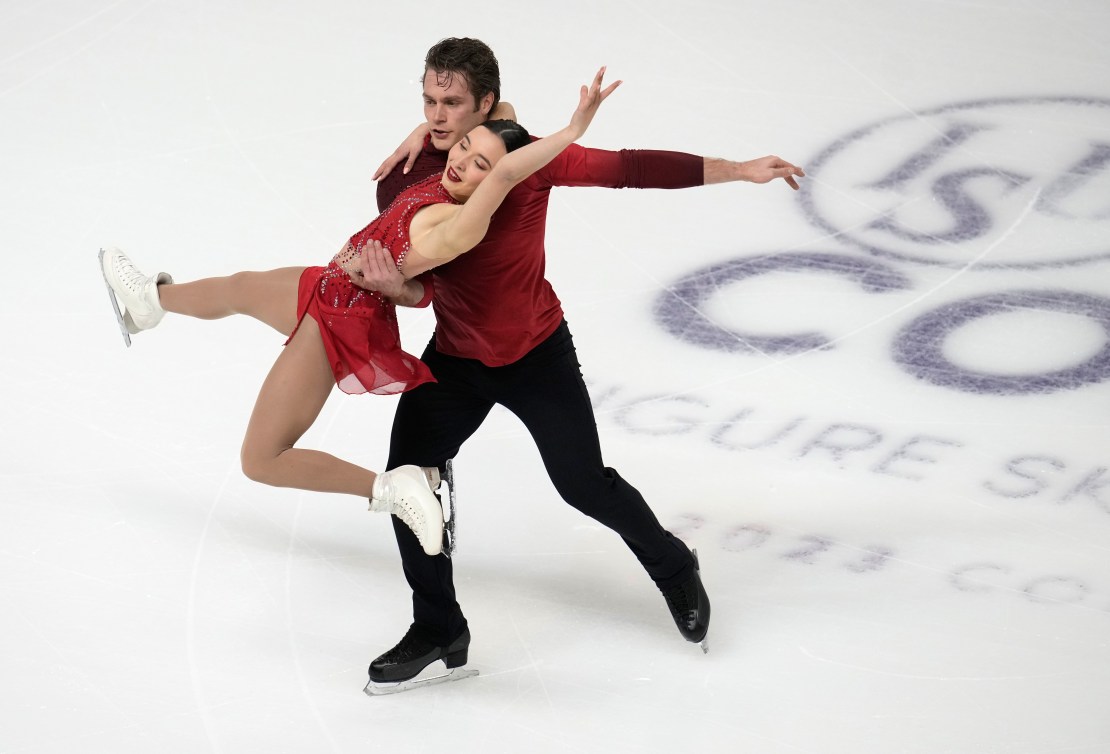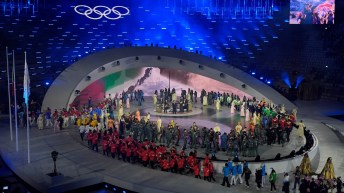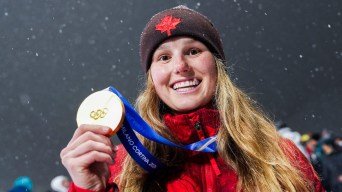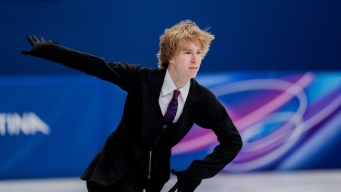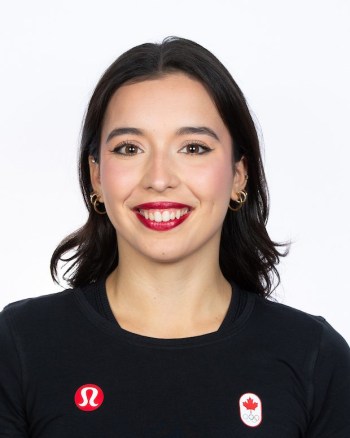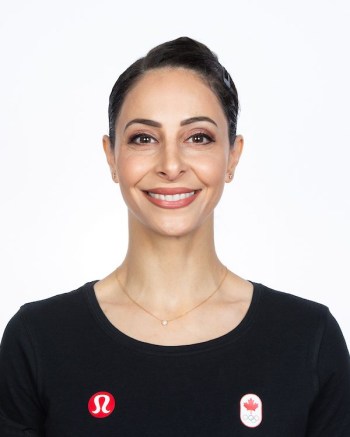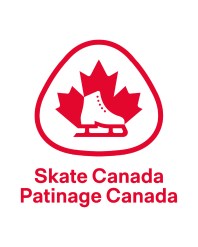5 things to watch at 2023 World Figure Skating Championships
It’s almost time for the biggest figure skating competition of the year.
Yes, the 2023 ISU World Figure Skating Championships will soon be underway in Saitama, Japan. Canada will be represented by 13 athletes across the four disciplines: one woman, two men, two ice dance duos, and three pairs.
You can stream the entire competition on CBCSports.ca or CBC Gem, starting at 10:00 p.m. ET on Tuesday, March 21. There will be broadcast coverage as part of CBC’s Road to the Olympic Games on Saturday, March 25 and Sunday, March 26.
Here are five things to keep on eye on when it comes to Team Canada.
Ice Dance (Double) Podium Potential
All fall, Piper Gilles and Paul Poirier looked unstoppable. They won both of their ISU Grand Prix events and took gold at the ISU Grand Prix Final for the first time. But they have not competed since early December while Gilles recovered from an appendectomy. They missed the national championships in January as well as the ISU Four Continent Championships in mid-February.
That means they haven’t faced off with their presumed top rivals for the world title – Americans Madison Chock and Evan Bates – since Gilles and Poirier had the edge at the Grand Prix Final. In winning Four Continents, Chock and Bates barely beat the score that the Canadians had earned in December.
READ: Piper & Paul and Evita: A dance a decade in the making
The absence of Gilles and Poirier opened the door for Laurence Fournier Beaudry and Nikolaj Soerensen to win their first national title. They followed up with the silver medal at the Four Continents, where they became the third-highest scoring team in the world this season. That success sets up the intriguing possibility of two Canadian teams reaching the world championship podium – which would be a first for the country in ice dance.
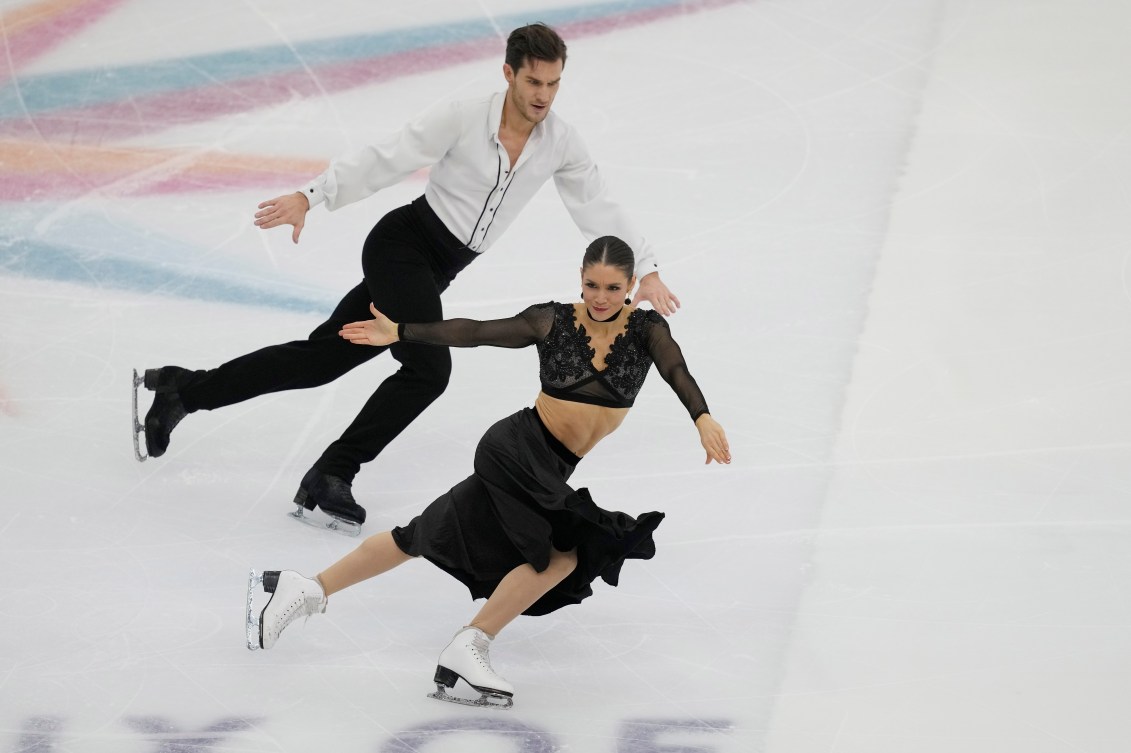
Of course, the competition has to be skated and the top two teams at the European Championships – Italy’s Charlene Guignard & Marco Fabbri and Great Britain’s Lilah Fear & Lewis Gibson – will also have their eyes on a medal.
Watch: Rhythm Dance – March 23, 10:00 p.m. ET / Free Dance – March 24, 11:30 p.m. ET
End of an Era for Messing
Keegan Messing’s farewell tour as a competitor continues in the country that is currently the epicentre of figure skating fandom. He’s coming off the high of winning silver at the Four Continents, which was his first career medal at an ISU Championship.
The personal best score he earned there ranks him third this season among the men who will compete in Saitama. Messing is behind only Japan’s reigning world champion Shoma Uno and American upstart Ilia Malinin, who is the talk of the sport after landing the first ever quad axel. But there will be plenty of other challengers for the podium.
READ: The most quintessential Keegan Messing moments
Messing will be joined by Conrad Orzel, who is making his world championship debut after winning silver at the Canadian championships and placing eighth at Four Continents.
Watch: Men’s Short Program – March 23, 2:50 a.m. ET / Men’s Free Skate – March 25, 4:20 a.m. ET
Opportunity Awaits Trio of Pairs
Pairs is the only discipline in which Canada is maxed out with three entries. It’s also perhaps the most unpredictable of the disciplines in which almost anything could happen.
Deanna Stellato-Dudek and Maxime Deschamps have been Canada’s most consistent pair over the last few months. After a gold and a silver in their two Grand Prix events, they won their first national title and added a bronze at the Four Continents. They have never been to the world championships together. A podium finish would be the icing on the cake of what has already been a historic breakthrough season for the 30-somethings.
At the other end of the age spectrum are Brooke McIntosh and Benjamin Mimar. They are making their senior world championship debuts after winning bronze at last year’s junior worlds. This young team hasn’t competed since they won silver at the Canadian championships in January. But they made their mark on the scene in the fall when they won their first Grand Prix medal.
Lia Pereira and Trennt Michaud are still only about half a year into their partnership. Their remarkable rise has been highlighted by their bronze medal at the Canadian championships and a fourth-place finish at Four Continents. Pereira, who had last competed in pairs only at the novice level several years ago, is off to her first worlds while Michaud is set for his fourth appearance.
Watch: Pairs’ Short Program – March 21, 10:00 p.m. ET / Pairs’ Free Skate – March 22, 10:00 p.m. ET
Madeline Schizas’ Mission
Madeline Schizas will be Canada’s lone entry in the women’s event. After finishing 13th and 12th in her first two world championship appearances, a break into the top 10 would be a nice achievement in an extremely tough field.
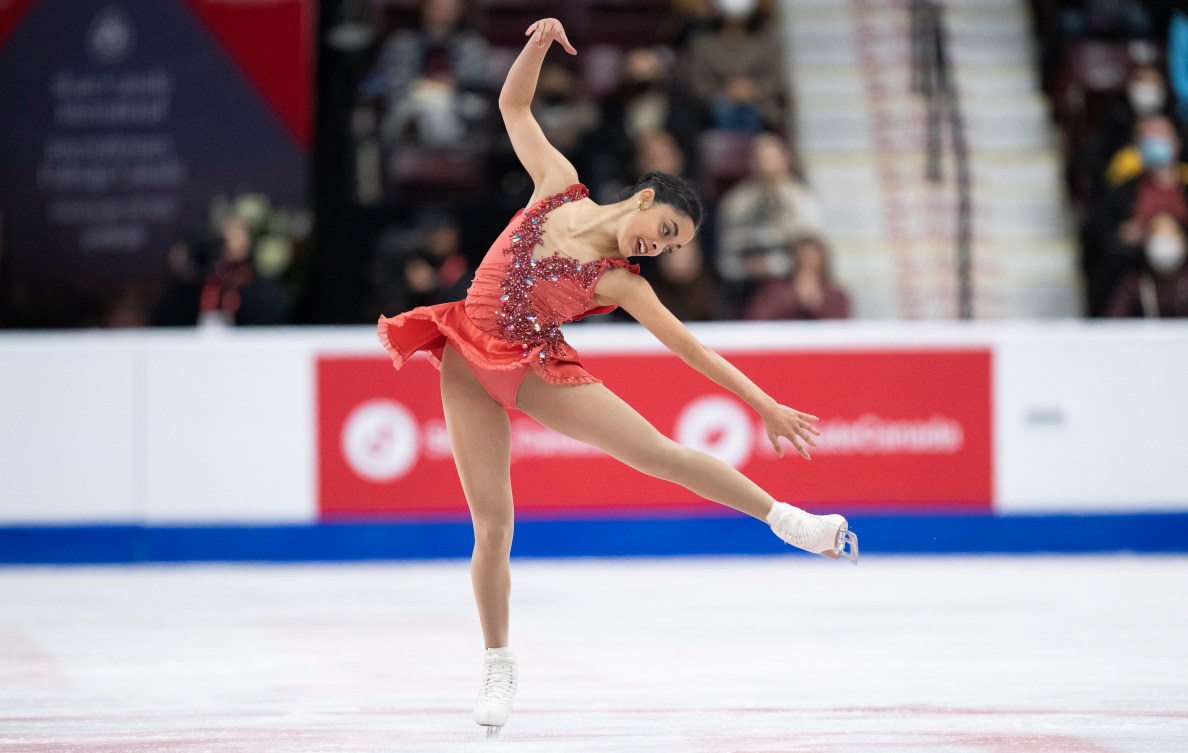
While the results have been up and down for Schizas this season, she has become Canada’s stalwart in the women’s event over the last couple of years. The younger skaters she defeated at the national championships in January are looking to her to secure an additional women’s spot for Canada for next year’s worlds.
Watch: Women’s Short Program – March 22, 1:50 a.m. ET / Women’s Free Skate – March 24, 4:20 a.m. ET
Earning Spots for World Championships at Home
Aside from medals, the most important thing at stake at every edition of the ISU World Figure Skating Championships is qualification for the next year’s worlds. In 2024, they will be hosted on Canadian ice in Montreal. The city is getting another shot after the 2020 Worlds were cancelled just a week before they were to start because of the onset of the COVID-19 pandemic.
Figuring out the quotas for each country involves a little math.
When a country has just one entry in a discipline, a top 10 finish will secure two spots for the following year in that discipline. A result lower than that keeps the country at one spot.
When a country has two or three entries, only the top two results will count towards qualification. If both placements add up to 13 or less (ex: 6th and 7th, 2nd and 11th), the country earns three spots in that discipline. If both placements total 14 to 28, then the country retains two spots. Anything more than 28 and the country drops down to one spot in the discipline.
Skaters who advance to their respective free skate receive at most 16 points for their placement (regardless of what their actual result is). Skaters who do not qualify for the free skate are given 18 points for their placement.

